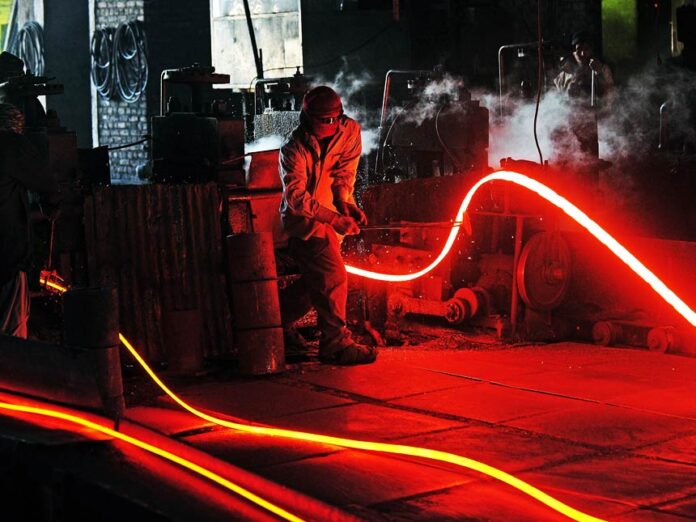ISLAMABAD: The Pakistan Association of Large Steel Producers (PALSP) has urged the Ministry of Industries and Production and other concerned departments, to address anomalies and issues in the Finance Bill 2020-21 pertaining to the steel industry.
According to the association, the government has granted permission to wire rod manufacturers in Budget 2020-21 to import billets by massively reducing duties and taxes.
However, the reduction and duties and taxes can potentially be misused by re-rolling mills not having wire rod manufacturing capacity, who will now also be able to import billets for rolling construction bars.
The association pointed out that there are only three to four manufacturers in the country that have the capability to produce wire rod using billets and that local billet manufacturers have enough capacity to meet their demand. Hence, the reduction in duties and taxes will hurt the local wire rod manufacturers as well as the steel billets manufacturers, while also reducing the country’s foreign exchange reserves due to increased imports.
Additionally PALSP claims that the steel industry is facing a liquidity crunch due to the Covid-19 pandemic and that the implementation of Section 8-b of the Sales Tax Act results in a large amount of working capital getting stuck. The association has therefore requested the government to allow a 100 per cent input adjustment for the steel sector.
The association further informed concerned ministries that the price difference between re-rollable material, ship plates and billets which are raw materials for construction bars should not be more than Rs2,000 to Rs3,000 per tonne. However, the price difference at present stands around Rs14,500 to Rs19,000 due to which billet manufacturers and billet re-rollers are facing financial losses.
PALSP has also urged the government to allow it to sell to unregistered parties. Clause 4 of Section 73 of the Sales Tax Act currently restricts manufacturers from making a sale in excess of Rs100 million to an unregistered person. According to the said clause should be removed as it is contradictory to Clause (m) of Section 8 of the Sales Tax Act, that allows sale of goods to unregistered persons on the provision of Computerised National Identity Card (CNIC) or National Tax Number (NTN).
According to the association, the melting industry heavily relies on imported heavy meltable scrap and shredded and bundled scrap to produce quality billets and other steel products. While the custom duty on shredded and bundled scrap removed in Budget 2019-20 custom duty on heavy meltable scrap was removed. PALSP has demanded that custom duty on heavy meltable scrap be removed in the Budget 2020-21, which the government has not done till now.
PALSP has also urged the government to make amendments in PCT Code 9917 so that local materials and good meeting international standards are allowed to be used at the Gwadar Free Port, Special Economic Zones as well as other mega projects related to China-Pakistan Economic Corridor (CPEC).
Currently there are 200 steel manufacturing units in the country with a combined capacity of over 4 million tonnes. This sector generates approximately Rs100 billion in government revenue.
























sir g hum is industry me khud kafeel ho gae lohe ki ab hamen textile ki industry ko uper lane ki zarurat ha uski production bharane ki zarurat ha jo bangladesh ne tabah kr di hai ya sariye ki jaga steel manufacturing ko bharaen kun steel ki production me kafi neeche han quality me bi or rates ne bi